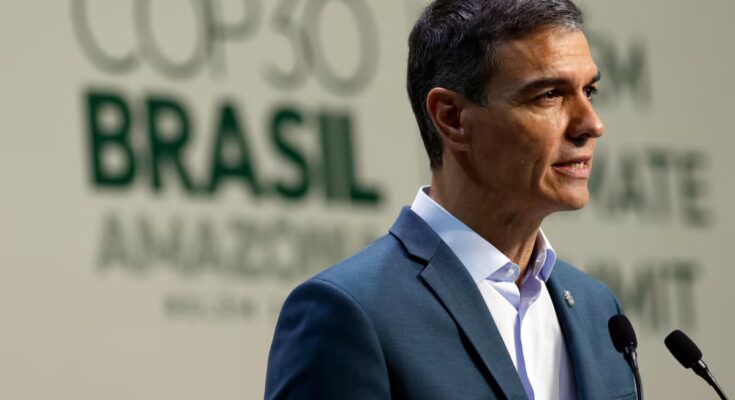On the eve of half a century since Franco’s death, the neo-Franco party Vox said it clearly: if the Popular Party wants to invest a new president In Valencia you can’t miss the Valley of the Fallen on your agenda. Otherwise, there will be no agreement while Santiago Abascal’s uphill run in the polls resonates. For Núñez Feijóo’s team it is not a comfortable situation. As happens with many conservative parties, the penetration of the far right into its constituency radicalizes its bases and upsets its leaders. It has already happened with the explicit agreement that both forces signed on June 15, 2023 in Valencia and which set the tone for autonomous agreements between national conservatives and populists. The paradox is that these pacts, which extended the territorial power of the PP, activated the mobilization that made it impossible for the current opposition leader to be president of the government today, to the great frustration of the capital bloc with so many power resources, closed lists of ministerial candidates and which does not forget that summer night. And, at the same time, without these corrosive pacts, many regional PP leaders would not be suffering from attrition today, the best example of which is the electoral advance in Extremadura.
To update the investiture agreement, Vox will give priority to policies that attack immigration and those that subvert the path of the 2030 Agenda. The PP did not say no. It is not surprising that Pedro Sánchez referred at the COP to the threat of a “denial majority” in Valencia and asked to bring forward the elections to avoid their consolidation. But the president, as on other occasions, puts calculation before strategy. Of course, a decent leader does not want to promote policies that deny the threat of global warming, without which phenomena like dana cannot be explained, but in the short term Sánchez’s highest goal is to corner a PP that is lost in this paradoxical dilemma. The president’s men know, as we all know, that the party that most capitalized on the unrest caused by the floods is not the PSOE, with disastrous leadership in Valencia, nor the PP, which supported Carlos Mazón until he was humiliated by the victims in front of the King and the entire citizenry. Between hoaxes and demagogy, dabbling in anti-politics, it was the deniers of Vox who supported the toxic and illiberal idea according to which only the people save the people.
Given this reality, what? During the state funeral, Spanish society was able to witness with emotion how Valencians continue to cry and be angry with their rulers. It’s no different. There were more than 200 deaths and during this year, in the face of Mazón’s lies, the belief grew that many could have been avoided with good management of the emergency. And it’s not just the pain that persists. Even problems where the damage was greatest. We have data to certify that the economies of some of the most affected populations have not recovered from the crisis shock. In the businesses of Alfafar or Paiporta the collection is not what it used to be, according to CaixaBank Research, and in Alfafar, Massanassa and Sedaví there are even fewer businesses open than before the dana. The major works that should be done to prevent episodes like that of October 29 from happening again require major agreements between administrations. Shouldn’t the Valencia of the reconstruction be an exception? The PSOE, now without Mazón, has a card to prevent Vox from being the main beneficiary of the tragedy. Why not play it?



